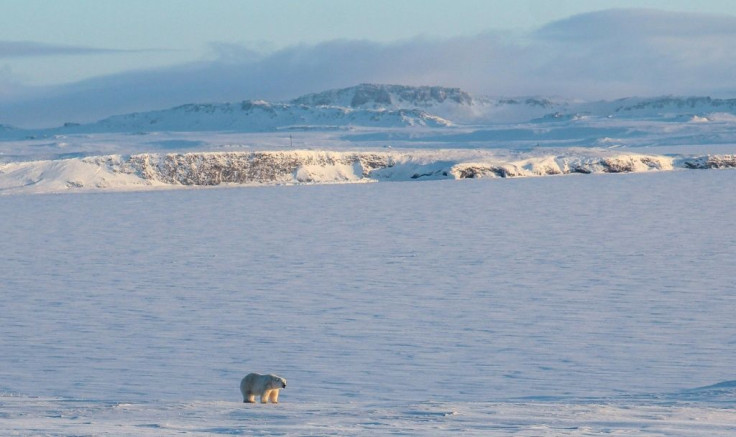Climate Change: New Traditions Needed To Fight Crisis

The holiday season is a tough time to think about change. It’s the time when we embrace yearly rituals and celebrate continuity. But often dangerous habits and behavior can be wrapped in tradition and clung to because “that’s the way it’s always been done” or it’s simply “business as usual.” But self-examination and tough choices are often the only way we can make real progress as a society.
Children used to work in factories. Doctors use to smoke cigarettes. Women couldn’t vote. These were big changes. And today, we are stuck in an economic model that is killing our planet right before our eyes — and that needs to change.
Just this week, the UN released yet another report decrying the bleak and perilous situation that we have created through greenhouse gas emissions and dangerous rising global temperatures. Unfortunately, common sense is rarely enough to fight entrenched social, political and economic forces. It takes a concerted effort — if not a full-on fight — to push through critical ideas necessary to shift our collective behavior.
That's why I was just arrested with Jane Fonda at the most recent Fire Drill Friday protest, and why so many people are committing to risk arrest with her at the U.S. Capitol in Washington D.C. These acts of peaceful civil disobedience that she has organized are designed to raise the alarm and amplify this message that so many Indigenous and local communities have been trying to spread for years: We need to keep forests standing, keep fossil fuels in the ground, and keep Indigenous rights intact.
But this change cannot be driven by families recycling more, or by trading in your car for a zero-emission electric vehicle, or buying responsibly produced palm oil. These are important and powerful acts — but what we need is systemic change. From agribusiness to fossil fuels to the financial industry that is propping up these destructive economies, we need to devote our time, resources and energy to developing new, sustainable economic models and a clear respect for the rights of communities on the frontlines of this disaster.
The numbers are irrefutable. Methane emissions from massive agribusiness and livestock is directly responsible for nearly 15% of all global greenhouse gas emissions. Commercial agriculture drives 71% of tropical rainforest destruction. And unless we change our fossil fuel production and consumption soon, we will blow past the targets set by the Paris Climate Agreement. Countries are currently set to produce twice the limit of oil, gas and coal by 2030 if we want to keep temperatures from rising to catastrophic levels. And yet, the Trump administration has prioritized fossil fuel development and gutted policies that could reduce greenhouse gas emissions.
This all points to drastic changes that are necessary right now. But what does that mean? Many naysayers will create false arguments — ”So, no one should eat meat? So, no one should drive a car? So, we should all turn off the lights forever?”
No. But we are in a hole. So, the first thing we need to do is stop digging. That means no more expansion of the fossil fuel sector. No more new deforestation for cattle grazing. No more new money pumped into destructive systems.
Money, of course, is the driver here. Banks like JP Morgan Chase, Santander, BNP Paribas, HSBC and investment houses like BlackRock and Vanguard continue to pour billions into new deforestation projects in the Amazon and new expanded pipeline projects in North America. That can stop today. And it needs to stop today. No new expansion, period. We need to stop digging ourselves deeper.
And this is urgent. Today, there is still a band of rainforests that follows the equator around the earth. But these forests are being intentionally and systematically burned down for agribusiness profits. Cattle ranching accounts for 80 percent of rain-forest destruction in Brazil alone. In Southeast Asia, the palm oil industry has been setting rainforests on fire like clockwork every year. Rainforests are not just incredible and rare places, they are also home to millions of people and house more diversity in animals and plants on one acre than you can find in most states.
Rainforests are also a critical part of any real solution to our climate crisis. Forests are the only technical solution we have to absorb and store enough carbon out of our atmosphere to stave off the worst effects of extreme climate change.
We need a new social and political will to refocus ourselves into a clean, sustainable economy. Developing clean and renewable energy sources, supporting cities around the globe that are setting new carbon emission standards, investing in sustainable agriculture — these are the new traditions that need to begin today.
Lindsey Allen is Executive Director of Rainforest Action Network
© Copyright IBTimes 2025. All rights reserved.





















